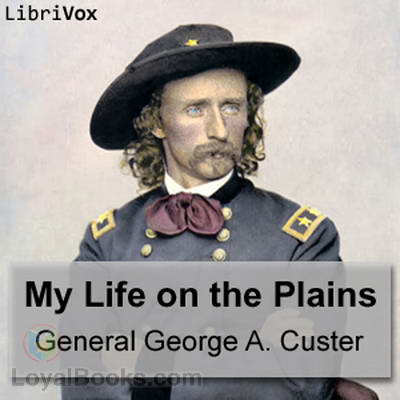
By: Gen. George A. Custer (1839-1876)
My Life on the Plains offers readers a firsthand account of Gen. George A. Custer's experiences during his time serving in the United States Army on the western frontier. Through his detailed and engaging narrative, Custer provides a glimpse into the challenges and adventures he faced while engaging with Native American tribes, leading military campaigns, and navigating the harsh conditions of the Great Plains.
Custer's writing style is straightforward and descriptive, allowing readers to easily envision the landscapes and events he describes. His candid reflections on the harsh realities of frontier life, including the brutality of warfare and the complexities of intercultural relations, offer a valuable perspective on this tumultuous period in American history.
While Custer's reputation has been marred by his controversial actions and ultimate demise at the Battle of Little Bighorn, My Life on the Plains demonstrates his skill as a storyteller and his deep commitment to his military service. Whether you are a history enthusiast, a military buff, or simply curious about life on the frontier, this memoir is sure to captivate and inform. Book Description:
George Armstrong Custer (December 5, 1839 – June 25, 1876), one of the most mythologized figures in American history, was an United States Army officer and cavalry commander in the American Civil War and the Indian Wars. He eventually met his fate in the battle of Little Big Horn in one of the most notable defeats of American armed forces.
My Life on the Plains is an autobiographical first-hand account of the Indian Wars of 1867-1869, detailing the winter campaign of 1868 in which Custer led the 7th US cavalry against the Cheyenne Indians. The book is a historical document of the perspectives and attitudes of it's age and author as well as an account of army life during the expeditions of the Indian Wars. Expect a fair amount of masculine bravado, historical fact-bending and quite a few stomach-turning descriptions of violence from both the Indians and the cavalry.
|